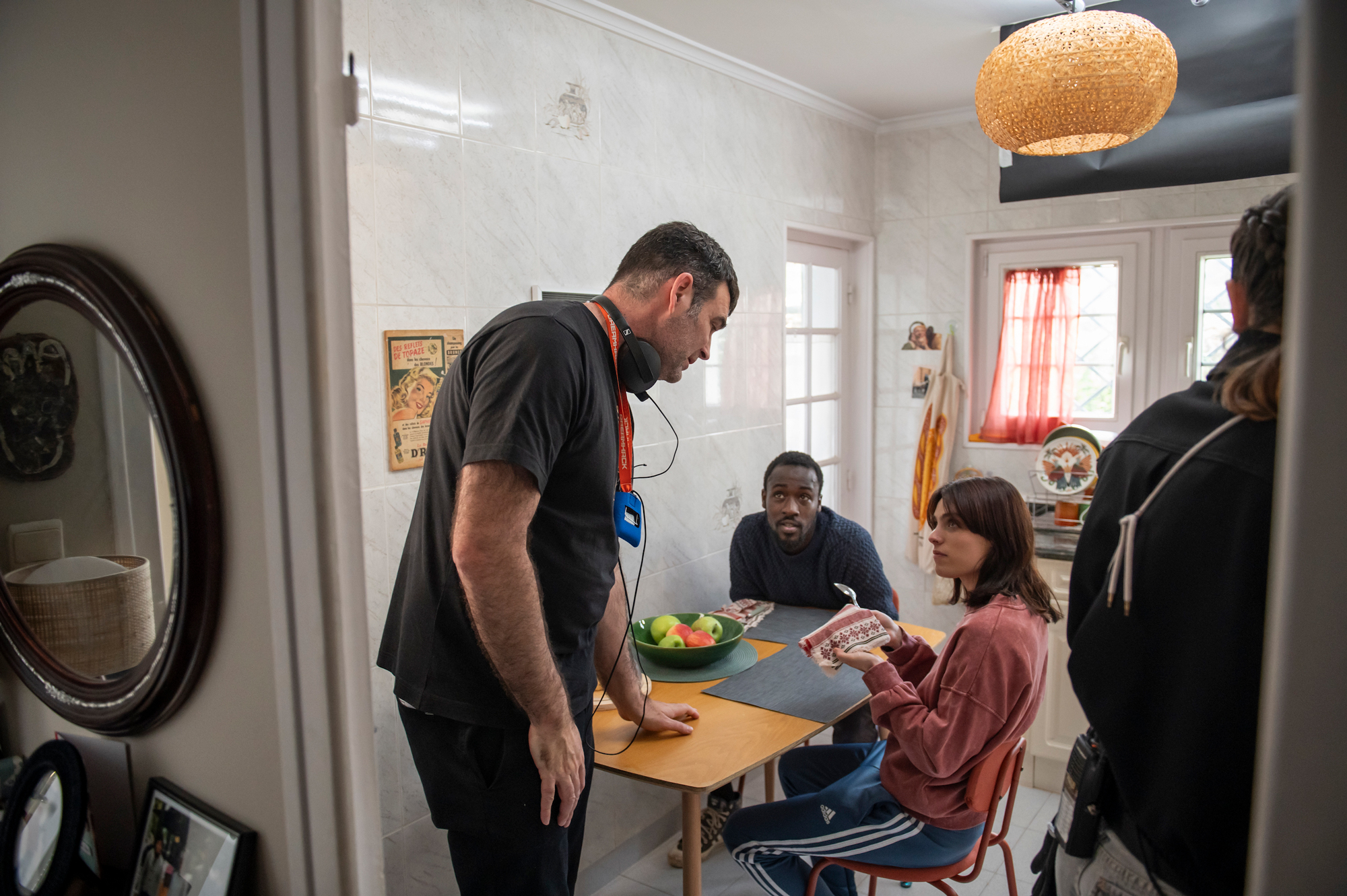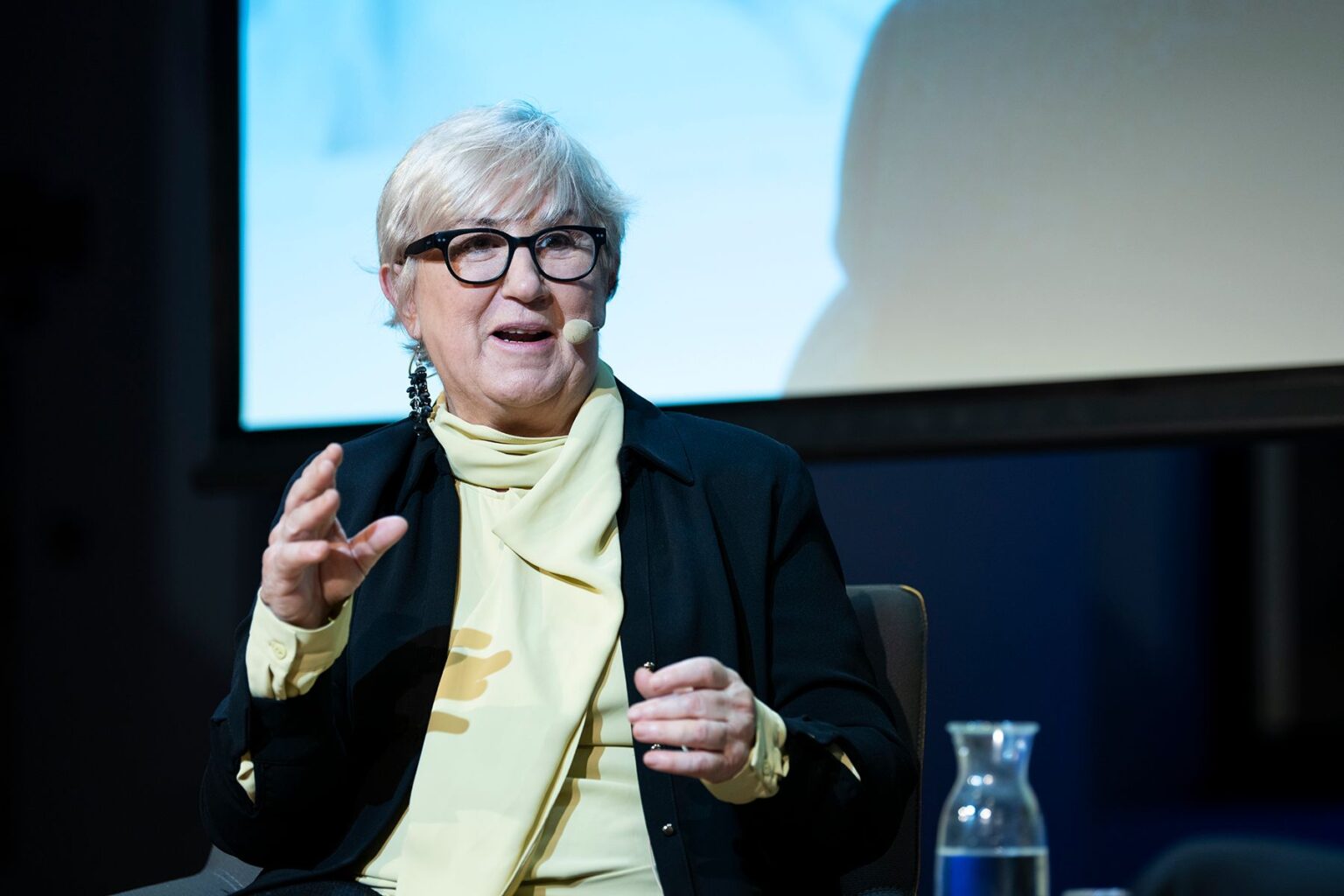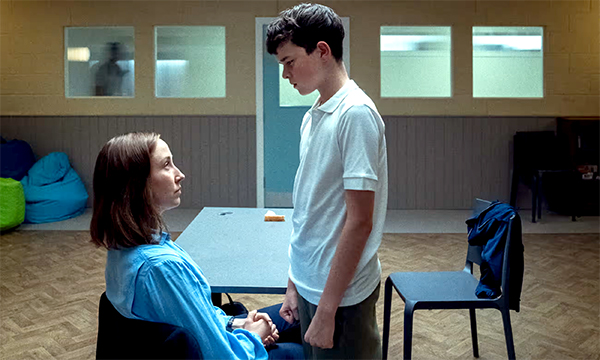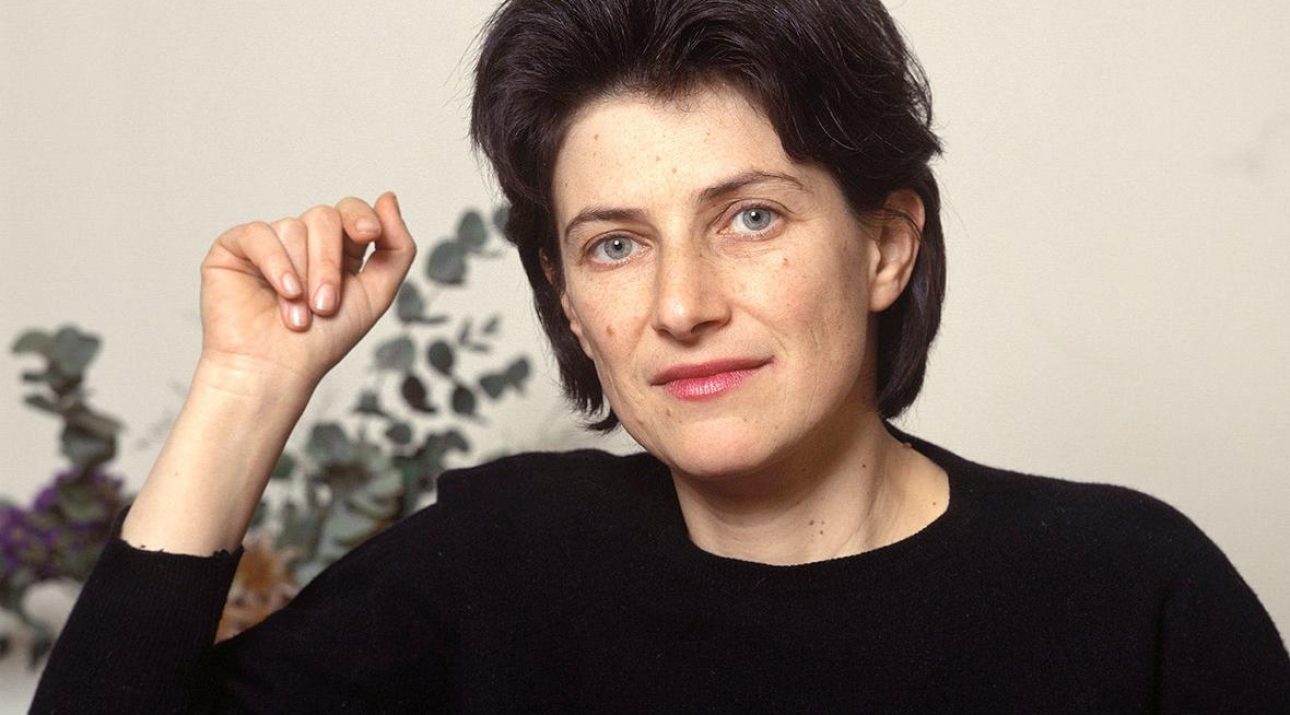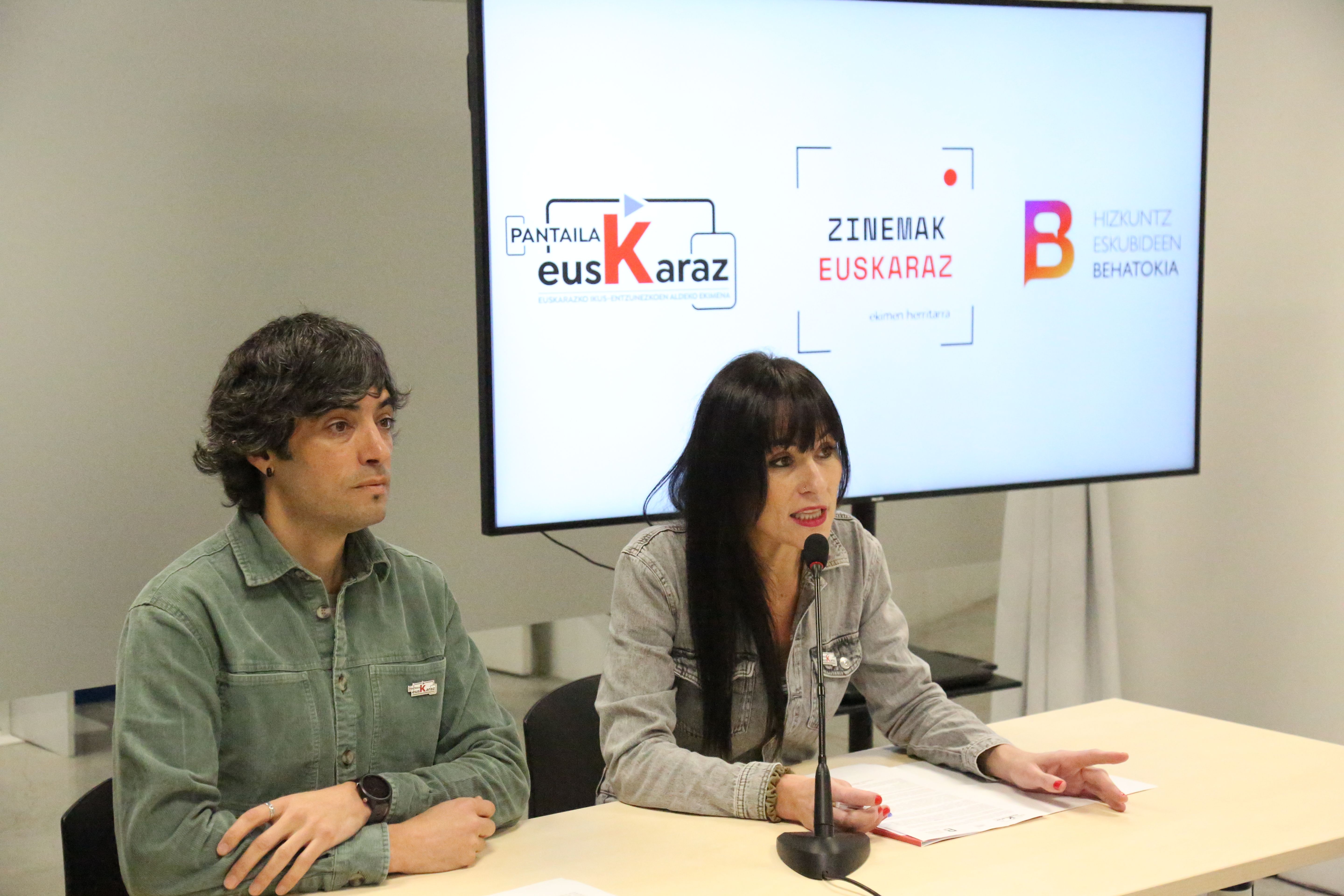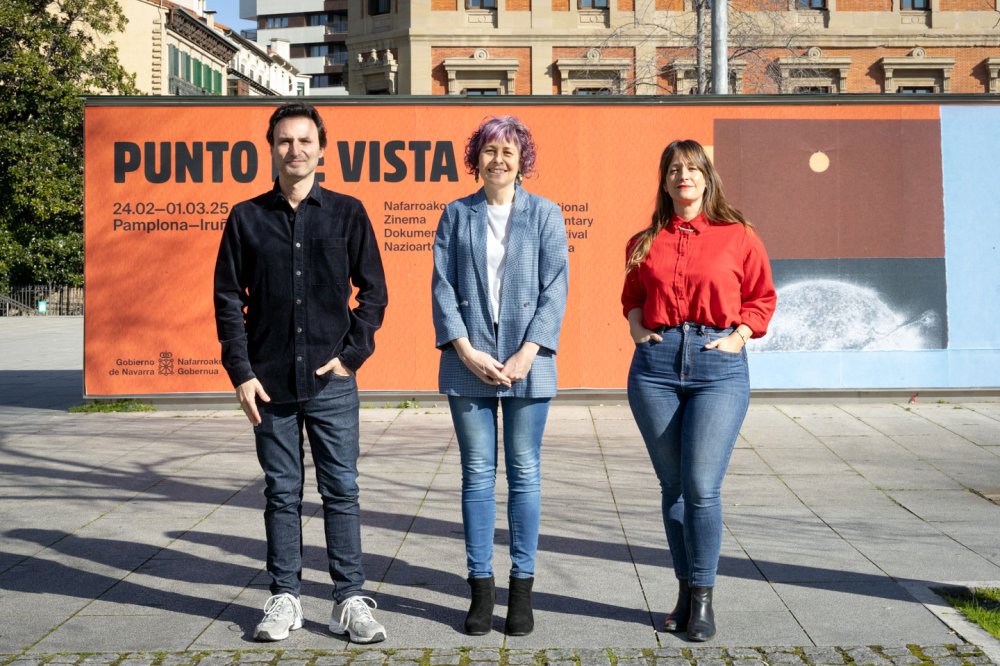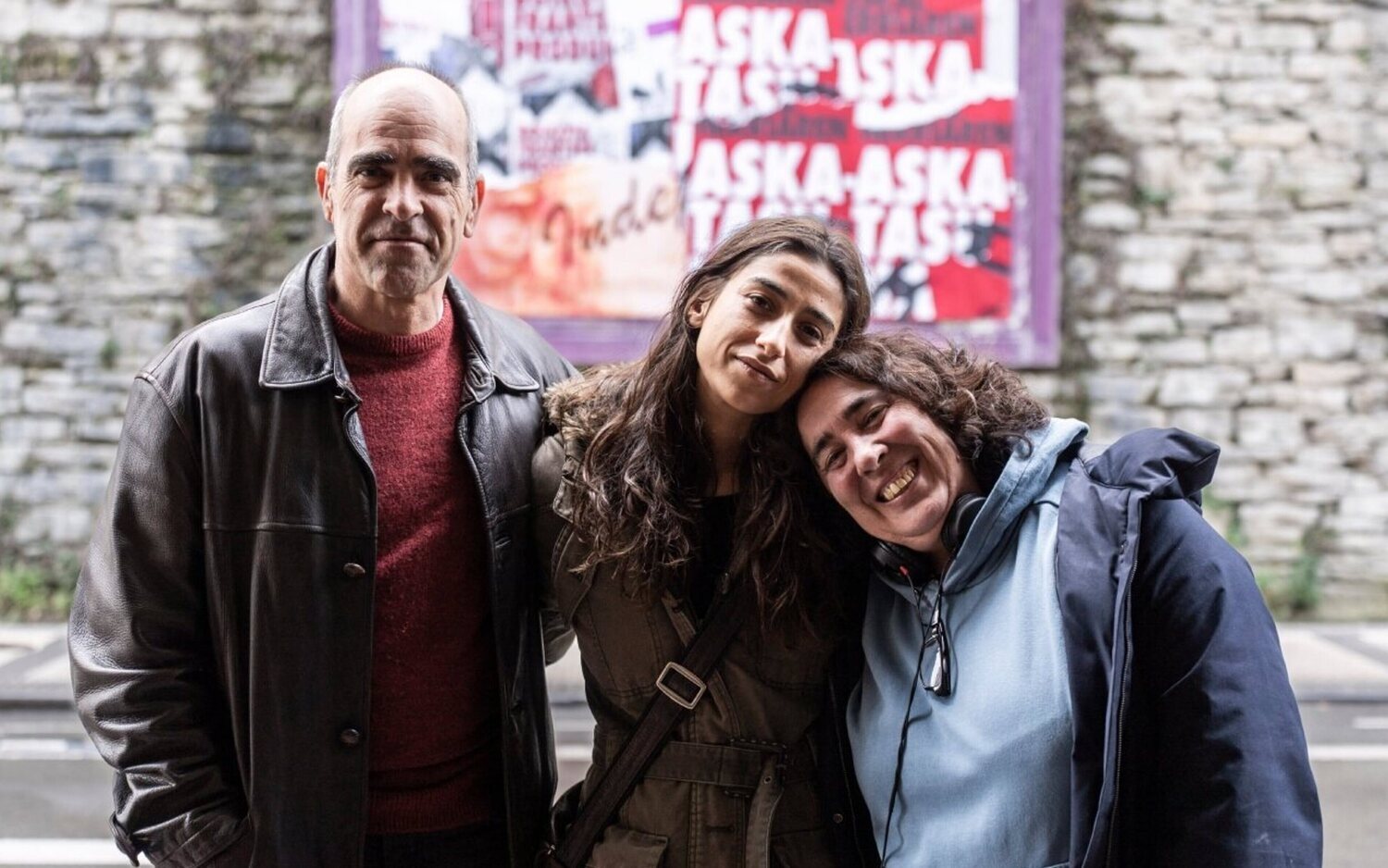'Bizkarsoro' arrives at Donostiarras cinemas thanks to the collaboration of Bagará, the City Hall and SADE
- The film Bizkarsoro (Josu Martínez, 2023) will be screened at Donostia-San Sebastian cinemas from this Friday (day 22) and, as explained by Iñaki Elorza of SADE, will be screened in principle for about two weeks and, if successful, longer. This was explained this Monday morning by the councillor for Culture, Euskera and Tourism Jon Insausti; the director of Bagera Euskaltzaleen Elkartea AMETS Ibero; the member of SADE Iñaki Elorza and the producer of the film Katti Pochelu in the City Hall; she was also going to participate in the press conference.
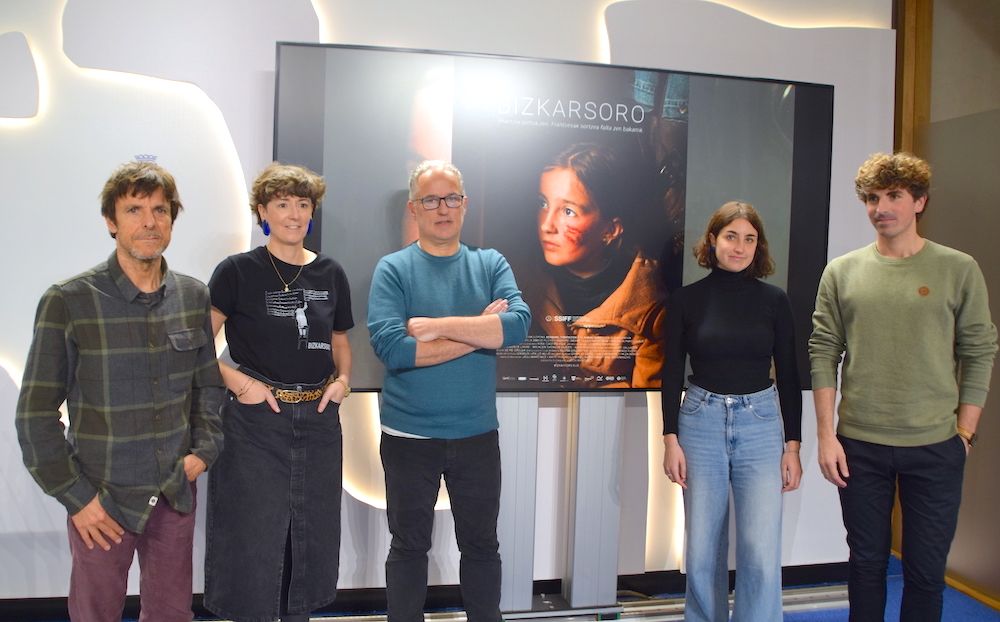
The main idea that everyone has put to value has been “collaboration”, as they have managed to bring to commercial theaters the film released last year at Zinemaldia: “Today’s photo is a reflection of collaboration,” Insausti stressed. “Two months ago, Dani Goñi and Xabi Zaldua [euskaltzaleak] contacted us, and everything has been very easy. One of the bases of SADE is the dissemination of Basque culture and film, with our instruments”, added Elorza.
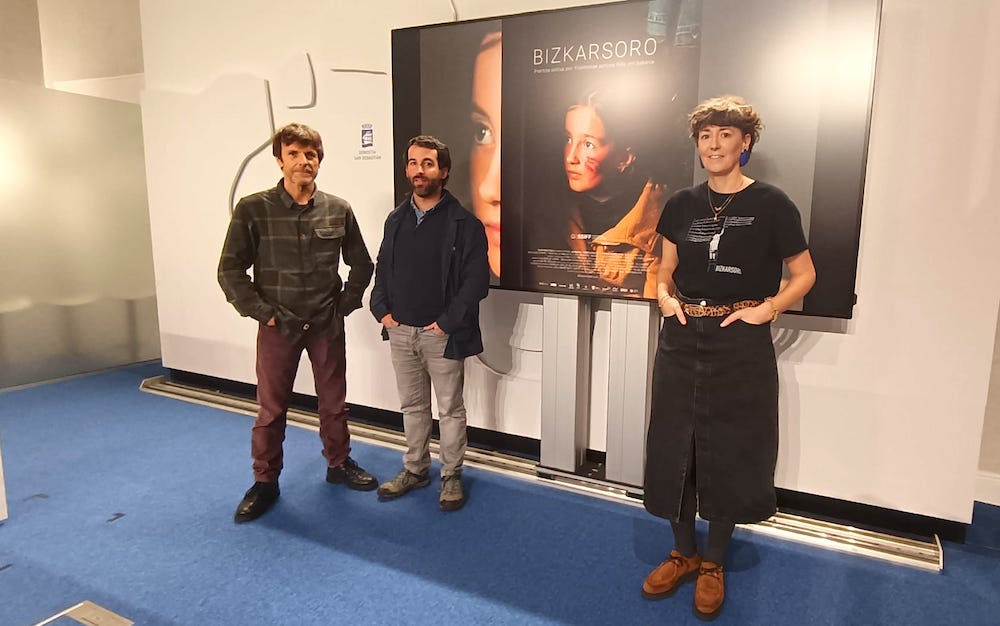
After its premiere at the San Sebastian Film Festival, Pochelu explained that it has been projected in many localities of Euskal Herria: “We have had over 360 performances and 30,000 spectators throughout the Basque Country.” In Donostia-San Sebastian, on the occasion of the Korrika Kulturala, the film was seen in the houses of culture, and later in other spaces, on popular initiative. Now, however, the film will take the leap to the commercial cinemas, with which the producer has shown himself "satisfied". “Bizkarsoro is a fictional town, but it also tells the story of Donostia and the Donostiarras, as the goal is to show what has happened in any village.”
In the same vein, Ibero said: “The film reflects the persecution suffered by the Basque people and the struggle of the Basques, and awakens the consciences. That’s why we call the Donostians to go to theaters.”
For students in the Main Theatre
In addition to the commercial halls, the Euskera Service has launched the initiative to project the film at the Main Theatre. It will be offered from 16 to 18 December, in the morning, to 1,616 students from fourteen ESO, Baccalaureate and Cycles centers. Before and after watching the film, they will work on the subject Bizkarsoro through a didactic unit elaborated specifically in the classroom.
“Through the didactic unit we will give context to the young people, they will know the repression suffered by the Basque and the Basques in the twentieth century, they will talk about the transmission and situation of the language, etc. In short, in addition to knowing the reasons why we understand the minority situation experienced by the Basque Country, we will give them the opportunity to reflect and reflect on it. Thanks to Bizkarsoro, you will be able to better understand our history and what has happened to us,” said Insausti.
No other land dokumentalaren zuzendari Hamdan Ballal kolono sionistek jipoitu zuten astelehenean bere herrian, beste hainbat palestinarrekin batera, eta Israelgo militarrek eraman zuten atxilo ondoren. Astarte goizean askatu dute.
Donostiako Tabakaleran, beste urte batez, hitza eta irudia elkar nahasi eta lotu dituzte Zinea eta literatura jardunaldietan. Aurten, Chantal Akerman zinegile belgikarraren obra izan dute aztergai; haren film bana hautatu eta aztertu dute Itxaro Bordak, Karmele Jaiok eta Danele... [+]
35 film aurkeztu dira lehiaketara eta zortzi aukeratu dituzte ikusgai egoteko Euskal Herriko 51 udalerritan. Euskarazko lanak egiten dituzten sortzaileak eta haiek ekoitzitako film laburrak ezagutaraztea da helburua. Taupa mugimenduak antolatzen du ekimena.
Pantailak Euskarazek eta Hizkuntz Eskubideen Behatokiak aurkeztu dituzte datu "kezkagarriak". Euskaraz eskaini diren estreinaldi kopurua ez dela %1,6ra iritsi ondorioztatu dute. Erakunde publikoei eskatu diete "herritar guztien hizkuntza eskubideak" zinemetan ere... [+]
Geroz eta ekoizpen gehiagok baliatzen dituzte teknologia berriak, izan plano orokor eta jendetsuak figurante bidez egitea aurrezteko, izan efektu bereziak are azkarrago egiteko. Azken urtean, dena den, Euskal Herriko zine-aretoak gehien bete dituztenetako bi pelikulek adimen... [+]
Otsailaren 24tik eta martxoaren 1era bitartean, astebetez 60 lan proiektatuko dituzte Punto de Vista zinema dokumentalaren jaialdian. Hamar film luze eta zazpi labur lehiatuko dira Sail Ofizialean; tartean mundu mailako lau estreinaldi eta Maddi Barber eta Marina Lameiro... [+]
A conference for architects has just been held in Madrid to discuss the crisis of the professional architect. They have distinguished the traditional and contemporary way of being an architect. What is traditional? From the epic architect who appears in The Brutalist, where... [+]









